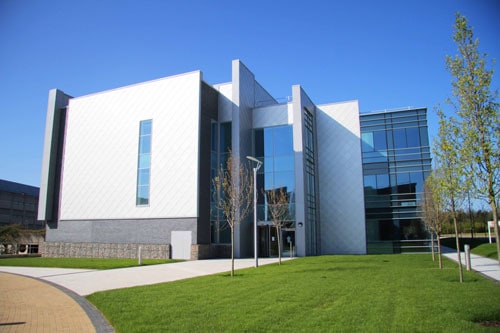 AstraZeneca, GlaxoSmithKline and Johnson & Johnson have teamed up with three top UK universities to create a £40m fund for discovering new medicines.
AstraZeneca, GlaxoSmithKline and Johnson & Johnson have teamed up with three top UK universities to create a £40m fund for discovering new medicines.
Dubbed the Apollo Therapeutics, the new fund will see the three pharma companies work with Imperial College London, University College London and the University of Cambridge.
Together they aim to “significantly improving the speed and potential of university research being translated into novel medicines”.
The three pharma firms are contributing £10m apiece into the fund, with the technology transfer departments of the three universities each stumping up £3.3m. The partners say the risk-sharing fund – which will run for six years in the first instance – is the first of its kind around the world.
Top pharma companies are increasingly trying to develop new ways of getting close to scientists working in external organisations, recognising that it is impossible to maintain a sustainable R&D pipeline from internal efforts alone.
GSK for example runs a drug discovery challenge, inviting scientists from academia to submit proposals for new projects in the hope of securing a development partnership, and is involved with a number of pre-competitive initiatives with other pharma companies.
Meanwhile, J&J has set up a network of centres at research hot spots around the world to try to encourage partnerships with academic scientists, while AZ uses talent scouts to seek out promising projects in key R&D areas and says it intends to put ‘open innovation’ and knowledge sharing at the heart of its new site in Cambridge.
The aim of Apollo is to take preclinical research from the universities and develop it until it can either be taken forward by one of the industry partners – after an internal bidding process – or be out-licensed.
A team of experts will be deployed by the fund to work with university technology transfer departments in “identifying and shaping projects”.
Apollo will be located on the campus of the Stevenage Biosciences Catalyst (pictured above), a bioscience hub that is focused on encouraging open innovation, and will be led by Dr Ian Tomlinson, formerly senior vice president, worldwide business development and biopharmaceuticals at GSK and chief scientific officer of Domantis.
“Apollo provides an additional source of early stage funding that will allow more therapeutics projects within the three universities to realise their full potential,” said Tomlinson.
“The active participation of the industry partners will also mean that projects will be shaped at a very early stage to optimise their suitability for further development.”




